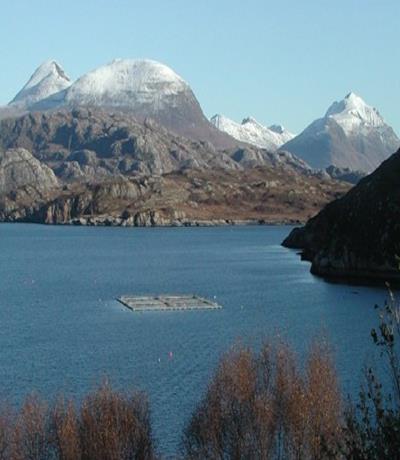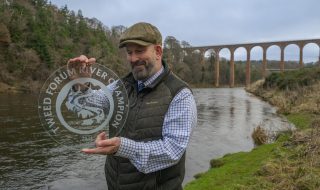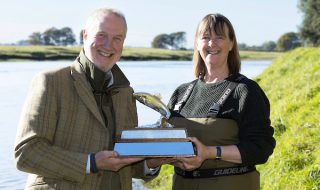The fish farming industry has received a blow after the principle of time-limited planning permissions for marine salmon farms was affirmed by the Scottish Government. The Scottish Government’s Directorate for Planning and Environmental Appeals refused an appeal by the Scottish Salmon Company to remove a 10 year time restriction on its salmon farm at Sgeir Dughall in Loch Torridon on Scotland’s north west coast. This is an important victory for those concerned about fish farms’ environmental impact on wild salmon and sea trout stocks.
In 2012 the Highland Council granted permission to the Scottish Salmon Company for a 2500 tonne fish farm in Upper Loch Torridon, but imposed a 10 year time-limit on the permission because of serious concerns over the potential impact of the farm on local salmon and sea trout populations. The fish farmer was very unhappy with the time restriction and in summer 2014 it made an application to Highland Council for the removal of the time limit, arguing that it was unreasonable, unnecessary and against Scottish Government planning policy. Fish Legal worked successfully with its member, the Wester Ross Area Salmon Fishery Board, to persuade the Highland Council to reject the application and reaffirm the need for the time limit.
In November 2014, as expected, the Scottish Salmon Company appealed the matter to the Scottish Government’s Directorate for Planning and Environmental Appeals claiming once again that the time limit was unreasonable and against government planning policy. Fish Legal worked with its client to submit powerful legal arguments in support of the planning authority’s decision to give a time limited permission. On 19 January a Decision was issued by the Reporter dismissing the salmon company’s appeal. The Appeal Reporter accepted much of the reasoning presented by Fish Legal that the 10 year restriction was consistent with Government policy and was entirely reasonable and necessary given uncertainty over the potential impact of the farm on wild salmon and sea trout populations.
Robert Younger, Fish Legal Solicitor said:
“I am very happy with this decision. Planning Authorities are legally responsible for managing the interactions between salmon fish farms and local salmon and sea trout populations and a time limited permission is an effective way in which this responsibility can be managed. We need to focus now on ensuring that all farms with temporary permissions are properly monitored so that their impacts on local salmon and sea trout are properly understood by the time the temporary permission has expired and the fish farmer is looking for a renewal.”






